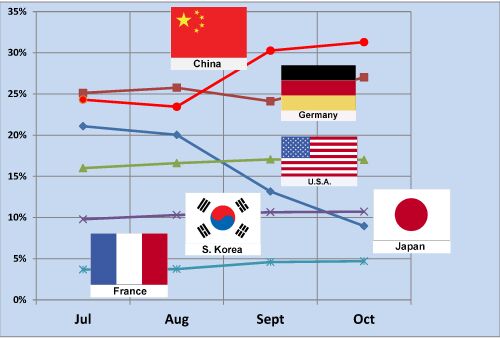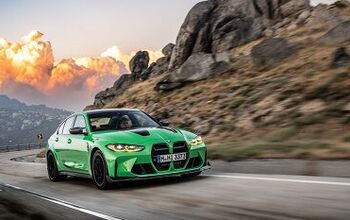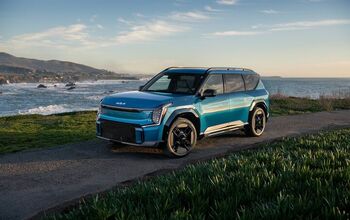What Is Happening To Toyota, Honda, Nissan In China, The Same Can Happen To GM

Buried In the depths of General Motor’s quarterly results is a routine litany of negative factors that could severely hamper the company’s future. One of them is “Significant changes in economic, political and market conditions in China.” GM intently monitors what is happening to Japanese brands in China, and it has more reason to watch with worries than with glee. What is happening to Toyota, Honda, and Nissan right now could just as easily happen to GM. The Japanese might shake off the troubles – Japanese makers have seen worse in the very recent past. GM would be brought to its knees by a boycott of American cars in China. Quite possibly, one of the reasons behind the whole anti-Japanese exercise is to say “look what could happen to you.” Government Motors finds itself at the mercy of China.
Market share by country, passenger vehicles, w/o SUV
Change can comes sudden in China: In the beginning of the year, the most bought cars in China carried Japanese brands. Six weeks after anti-Japanese tensions flared up in China in September over the Senkaku/Diaoyu islands the market share of all Japanese brands in China was decimated to a size a little better than that of France.
Nobody knows how long it will take to get back to normal. Observers are convinced it won’t be next month, and it could take well into next year. As quickly as flames were stoked and extinguished last September, the heat can be turned up again. And is does not have to be just Japan that can be on the receiving end.
Today, all three Japanese majors reported the impact of the anti-Japanese demonstrations and boycotts in November. After cutting sales in half in October, the impact has lessened somewhat in November, but it is still severe. Nissan and Honda lost nearly 30 percent of their sales in November, Toyota gave up 22 percent. The losses are most painful for Nissan, which has the highest exposure to China. Around a quarter of its global sales are in the Middle Kingdom.
A week ago, Washington complained that China’s currency remains undervalued, but stopped short of branding the country a currency manipulator, an act that could trigger far greater repercussions from China than Japan buying a few rocks in the East China sea to keep them from falling into the hands of a firebrand right-wing Tokyo Governor who could have installed a helicopter base and a troop of Tokyo’s Metropolitan Police on the islets.
It is no accident that the Treasury report on China manipulating its currency or not, originally scheduled for October, was delayed until after the elections.
America has been engaged in a low level trade war with China since President Obama had to express gratitude to the unions for his first term election. GM quickly became collateral damage of this trade war. Tariffs enacted by China to retaliate against America’s punitive tariffs against low cost Chinese tires were carefully crafted to hit GM. Exports of Cadillacs to China dropped as a result, and Chinese production of the brand was accelerated.
General Motors would be the logical and most vulnerable target of anti-American riots in China, should they happen. GM is more dependent on China than any American company, much more so than any Japanese carmaker. Chrysler has zero exposure to China. Ford is just getting into the game.
What happened in September in China, and what is still happening to Japanese car sales in China, is a signal to America: See what could happen to you.
And in case nobody is paying attention, there was another signal. During the height of the anti-Japanese riots, a group of protesters marched to the American embassy in Beijing, perfectly timed with the arrival of U.S. Ambassador Gary Locke’s car. The car was pelted with bottles, the American flag was ripped off the car. Watch what happened. Police (blue) was unable or too few to be effective. After some hesitations, paramilitary police (olive) intervened, the Ambassador’s car could speed away. No mass arrests were reported, Chinese authorities expressed regret.

Bertel Schmitt comes back to journalism after taking a 35 year break in advertising and marketing. He ran and owned advertising agencies in Duesseldorf, Germany, and New York City. Volkswagen A.G. was Bertel's most important corporate account. Schmitt's advertising and marketing career touched many corners of the industry with a special focus on automotive products and services. Since 2004, he lives in Japan and China with his wife <a href="http://www.tomokoandbertel.com"> Tomoko </a>. Bertel Schmitt is a founding board member of the <a href="http://www.offshoresuperseries.com"> Offshore Super Series </a>, an American offshore powerboat racing organization. He is co-owner of the racing team Typhoon.
More by Bertel Schmitt
Latest Car Reviews
Read moreLatest Product Reviews
Read moreRecent Comments
- MaintenanceCosts This is probably as good as B5.5's get, but keeping it that way is going to be very very expensive, and for all that money you won't even have three pedals.
- Urlik Peak Passat.
- Cla65786503 Do the esses at Riverside International Raceway count as a corner?
- El scotto Do the Agnellis care about any of this?
- El scotto Wait! What are these higher-level Kias you write about?




































Comments
Join the conversation
We will always remember Premier Chou En-lai. Where is today's Chou? A voice of moderation and conciliation through the wrath of party purges. Nixon in Caracas was staged the glass was smashed outwards...
Its a very real risk. Not just for GM but for VW as well. China does use their economy as a big stick. Besides that Japanese, Norwegian goods, Filipino agricultural products have also been punished recently for various political disputes. Chinese official media outlets have been warning that the US is "playing with fire" recently: http://www.chinadaily.com.cn/opinion/2012-12/04/content_15985077.htm http://www.chinadaily.com.cn/world/2012-12/02/content_15978333.htm This comes as the US is officially putting the Senakaku/Diaoyou islands under US military protection in case of Chinese aggression via Senate passing the 2013 National Defense Authorization Act last week. Chinese aggression means a US military response. This also comes as Deputy Secretary of State Richard Armitage stating that the US is 'not neutral' when it comes to the islands disputes. “We’re not neutral when our ally is a victim of coercion or aggression or intimidation,” http://blogs.wsj.com/japanrealtime/2012/11/29/u-s-not-neutral-about-japan-armitage-told-beijing/ The US can very easily be drawn into these political disputes, especially as the US is also supporting its allies in South East Asia. As China is also in disputes for 90% of the South China Seas. BUT I don't think the Chinese goverment would be foolish enough to orchestrate an anti-American riot any time soon. The Japanese are easy targets, America would not respond as passively as the Japanese. America wields much bigger sticks. GM has nothing to fear for now.